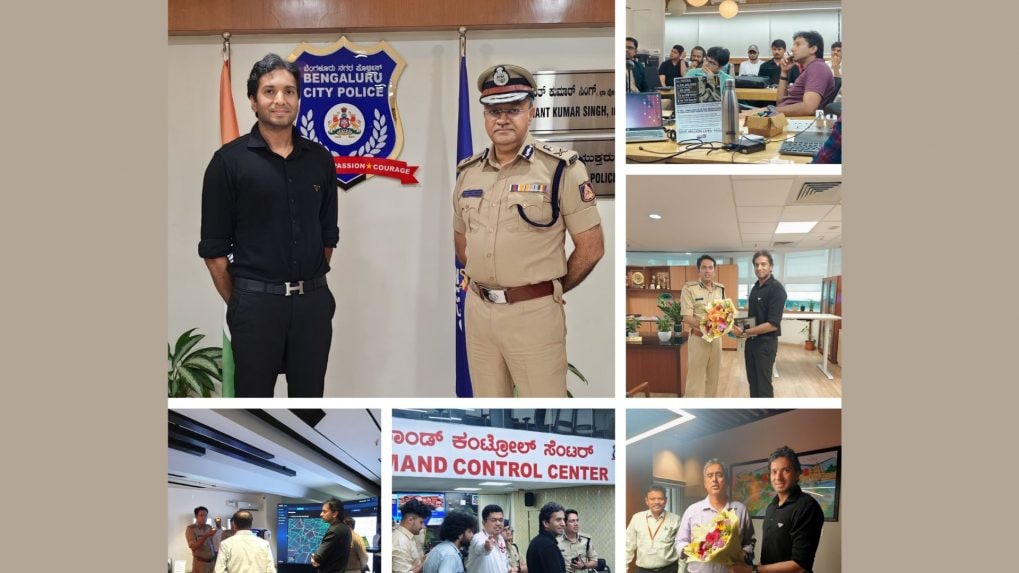Digital
Why OpenAI is hiring 100 ex-bankers: Inside the ChatGPT-maker's secret project to automate Wall Street's grunt work

Bengaluru's traffic crisis might finally be on the road to resolution - thanks an ambitious, data-driven intervention spearheaded by Prashant Pitti, co-founder of EaseMyTrip.
Just days after announcing a Rs 1 crore commitment to solving the city's chronic congestion problem, Pitti has unveiled a comprehensive action plan that he believes could slash traffic volumes by 25-50% within a year.
Also Read: EaseMyTrip’s Prashant Pitti commits Rs 1 cr to solve Bengaluru traffic using AI, Google Maps
In a major update shared on social media platform X, Pitti wrote, "I am confident of improving Bengaluru traffic by 25-30% within a year's time."
? MAJOR UPDATE on Bangalore Traffic Project!
— Prashant Pitti (@ppitti) July 24, 2025
I am confident of improving Bangalore traffic by 25-30% within a year's time
---
1. Collaboration at Scale
In just 10 days, after meeting the commissioners of BTP, BBMP, CP, Google team, IISC professors, Scientist, Road Engineers,… pic.twitter.com/eQKd9B6KaR
This announcement follows a series of meetings with key officials from the Bengaluru Traffic Police (BTO), Bruhat Bengaluru Mahanagara Palike (BBMP), and City Police, marking a shift from frustration to full-fledged action.
Pitti's plan hinges on bringing together a diverse coalition - public officials, Google's mobility team, professors from the Indian Institute of Science (IISc), road engineers, traffic-tech entrepreneurs, and scientists. "This is no longer about rants or blaming the system. It's about practical optimism," Pitti said.
Central to the initiative are simulation models developed by BTP and IISc that can generate dynamic re-routing suggestions.
To enhance their precision, Pitti has reached out to mobility giants like Google, Uber, Ola, and Rapido for detailed traffic and mobility data.
Among the rapid intervention measures Pitti proposed is revamping the government's pothole complaint app - taking ownership of it and expanding its use to report illegal parking, signal malfunctions, wrong-side driving, waterlogging, and vehicle breakdowns. In a bid to improve transparency and public trust, every complaint and follow-up action will be timestamped and made visible to citizens.
One of the standard tech interventions is proposed "Hyperlocal Rain Predictor" - forecasting tool to help authorities plan roadwork better and prevent unnecessary delays due to unexpected rainfall. "Often, work begins and gets halted because it starts raining. This leads to crazy downtime and massive congestion," he explained.
Another project already in pilot phase is the rollout of “Green Wave Signals,” which syncs traffic lights along a route to ensure smoother vehicular flow. "We'll study the outcomes to determine whether city-wide implementation is feasible," he noted.
Responding to critics who argue that Bengaluru's traffic woes stem from poor infrastructure, Pitti fired back: “Congrats on stating the obvious. If we continue to wait for better infra, we’re merely playing a catch-up game with the West.” Instead, he advocates focusing on optimizing existing infrastructure through better data and smarter planning.
To ensure public participation, Pitti has also launched a WhatsApp community where commuters can flag specific problem spots. These will be compiled and regularly shared with civic authorities.
The campaign was born out of a personal ordeal when Pitti spent more than two hours navigating a mere 11 km in the city.
In a wide-ranging interview with Storyboard18, Sorrell delivers his frankest assessment yet of how the deal will redefine creativity, media, and talent across markets.